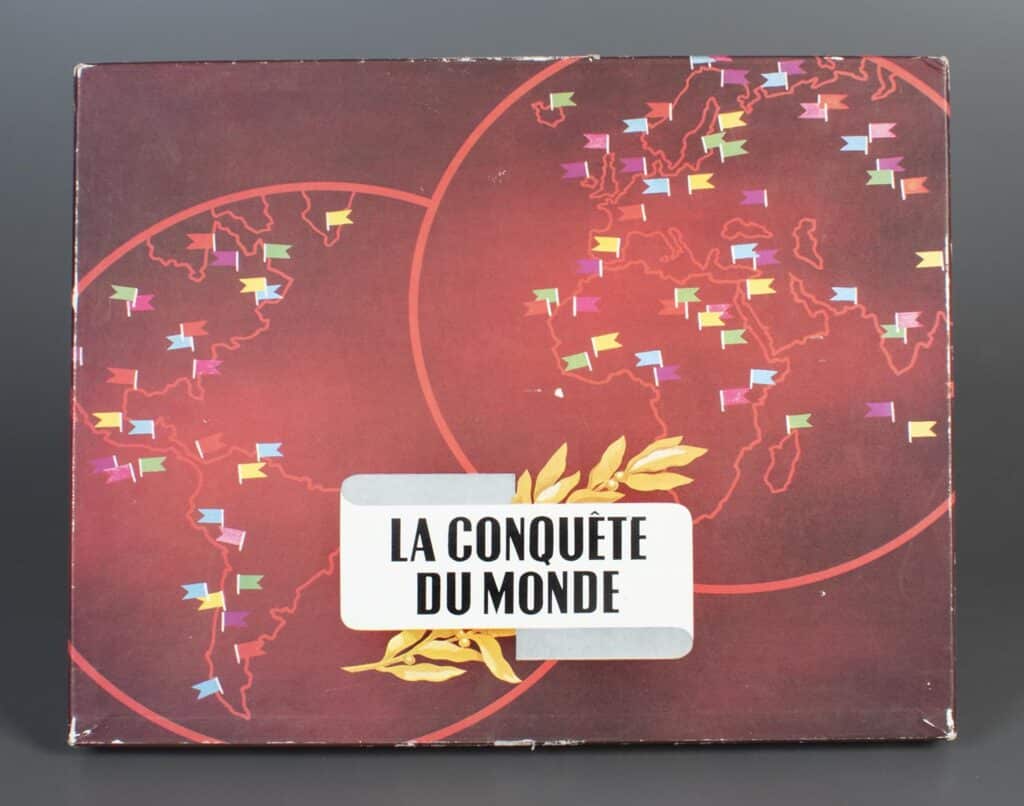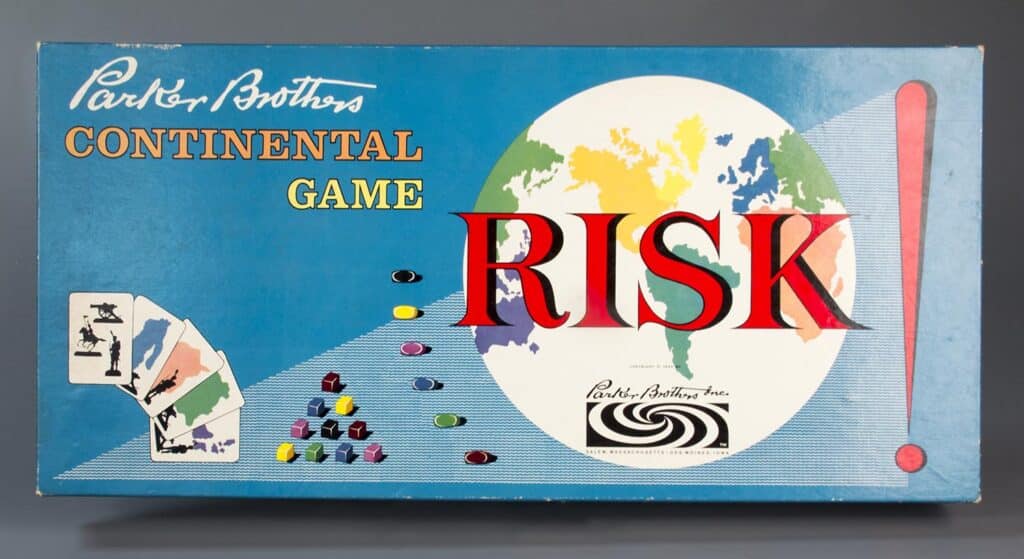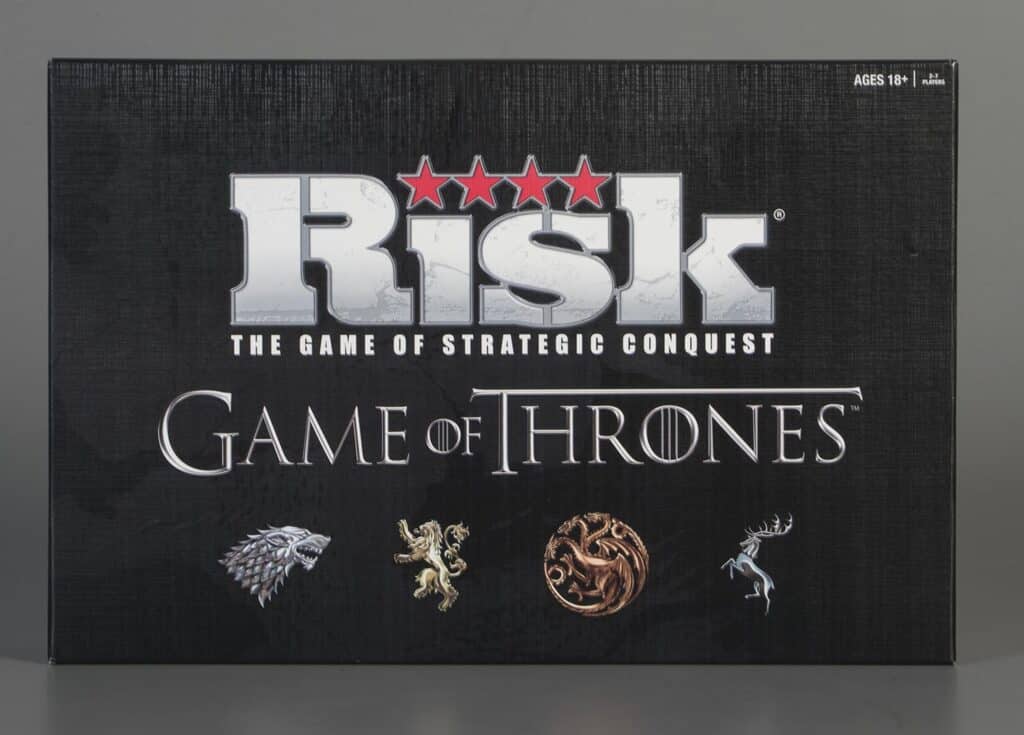
On November 4, 2022, the board game Risk joined the other celebrated toys and games in the National Toy Hall of Fame. But that accolade only confirmed what someone like John Crocker knew—Risk is a great game. Crocker served in the United States Air Force during the Gulf War, from 1990–1991. His squad stumbled upon a Risk board game. He said,
“During our time in the Gulf we must have played 50 (heated) games of Risk. Fast forward to our 25 year Gulf war reunion (in) 2016 and yes—you guessed it—we played Risk. Now every year since we have gotten together on a weekend in May, laughed, cried, told epic stories and had epic battles playing Risk…. Risk brought us together and kept us together as life-long brothers.”

We all know that gaming can create some of the strongest bonds of friendship. And though it may seem contradictory, gaming at war is one of the oldest and most enduring game forms. Consider chess—one of the most ancient games—as a battle between two sides. But nearly all games involve a form of competition. A winner, in a sense, wins a war against opponents. And we’ve learned that such competition is healthy. It trains us for life, and it builds our ties of friendship and fondness.
The film director Albert Lamorisse (1922–1970) must have understood this when he designed a different kind of board game called La Conquête du Monde (Conquest of the World) in 1957. And two years later the American game maker Parker Brothers brought out its own version titled Risk, with only a few changes from Lamorisse’s game.

Unlike most war games that preceded it, Risk allows for multiple players instead of just two. A player’s tokens, representing different sizes and types of armies, can attack neighboring territories as part of each turn. Dice resolve the battle, and a player can attack as many times as wanted on a turn. But opponents may agree, diplomatically, to create an alliance against the attacking player. In the play, one begins to understand the intricacies of battling, forming alliances, and protecting territories gained. Risk’s simple rules lead to complex, and fun, player interactions.
Part of the significance of Risk is its influence on so many simulation board games that came afterwards. Experts agree that more complicated games such as Milton Bradley’s Axis and Allies, and even the contemporary Settlers of Catan series were inspired, in part, by the original multi-player war, diplomacy, and conquest game.

Risk remains a favorite game in the United States. Like so many other classic board games today, it is made in hundreds of specially themed versions, from Star Wars to The Walking Dead. A multitude of video game versions shorten battle times by eliminating physical dice. And Risk is published in more than 20 languages, with updates regularly. In fact, you might say that the game about conquering the world has conquered the world.
But what has made it endure as a favorite? What do gamers say about it?
“Absolute classic game that got me started in board gaming.”—Jmccue
“One of my favorite games of all time. The strategy involved in the game is just absolutely fantastic the game is so fun.”—Salami_Joe_103
“The grandfather of games, this is the one that started it all for me! Zillions of game play hours on this one. Simple as can be, world scale battles, with some luck you’ll take over the world!”—Gilron6
“Cop at 4:00am ‘What are you doing driving home so late?’
Me ‘I just finished a six hour game of Risk’
Cop ‘You can go’”—Beerhamut
All quotes from BoardGameGeek comments on Risk
Consider a game of Risk the next time you and your friends and family gather with some time to spare. Playing a great classic game like this, you are sure to enjoy each other’s company, get to know one another better, and create lasting memories. And perhaps, you’ll conquer the world!
 Hours 10 a.m.–5 p.m. | Fri. & Sat. till 8 p.m.
Hours 10 a.m.–5 p.m. | Fri. & Sat. till 8 p.m.